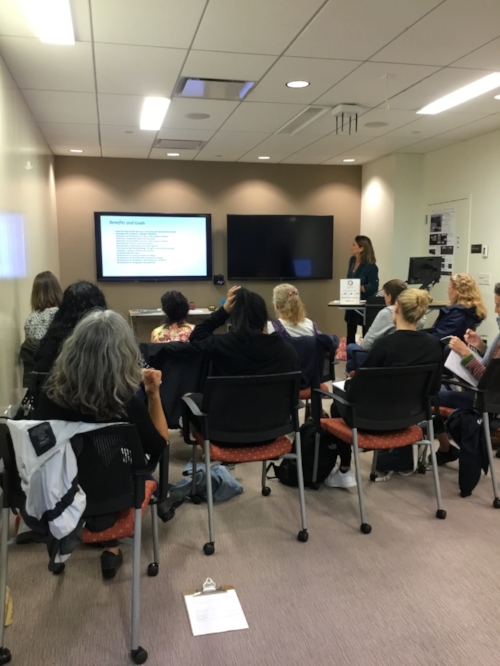Yoga, Meditation and the Reggio Emilia Philosophy
/Reflections from HeartSeed’s presentation at The Wonder of Learning exhibit at BU/Wheelock
Stepping into The Wonder of Learning-
Reggio Emilia is a small village in Italy and home to the Reggio Emilia educational approach. After the destruction of World War II the people of this village had a strong desire for change and hope for a world free of oppression, injustice and inequality. A group of women created a school which held the view that all children are full of potential and possibility. This bold step required society to think differently about childhood and fostered a valuing of children and their capabilities. The role of the teacher was no longer to teach from a prescribed curriculum but to observe, listen, and provide children with opportunities to explore their interests. The approach is child-led, and the experience is a collaboration.
You might already be seeing some lovely connections between the ancient practices of yoga and meditation and the post WWll philosophy of education. A few of the themes and qualities that we explored during my presentation at The Wonder of Learning were: Beginner’s Mind, Wonder, and Deep Listening.
Beginner’s Mind in the Indo-Tibetan traditions refers to our ‘original mind’, the teacher within, deeply knowing. Beginner’s mind is not attached to experiences or beliefs and does not judge. Experiencing things with freshness as if we are experiencing them for the first time, with a sense of wonder, comes naturally for children. The practices of yoga and meditation point the way, encouraging beginner’s mind, connecting easefully with Reggio’s image of the child.
Wonder, the curiosity to know something, is a quality of beginner’s mind. It is also a central value of the Reggio Emilia philosophy. Reggio holds that children are full of potential, competent, and capable of constructing knowledge. Children have not spent a lifetime entangled in the distractions, noise, and the everyday challenges of being human. The practices of yoga and meditation are designed to keep us awake, offering children the skills and practices to carry beginner’s mind and a sense of wonder with them through childhood and into adulthood.
Deep Listening is a key ingredient in Reggio’s ‘role of the teacher’, and is naturally nurtured within the child. “Deep Listening involves listening from a deep, receptive, and caring place in oneself, to deeper and often subtler levels of meaning and intention in the other person.” (Deep Listening by David Rome) It is essential to the development of awareness.
Here is an excerpt from The Pedagogy of Listening by Carla Rinaldi:
“Listening is sensitive to the patterns that connect, to that which connects us to others; abandoning ourselves to the conviction that our understanding and our own being are but small parts of a broader, integrated knowledge that holds the universe together.
Listening, then, as a metaphor for having the openness and sensitivity to listen and be listened to - listening not just with our ears, but with all our senses.
Listening to the hundred, the thousand languages, symbols, and codes we use to express ourselves and communicate, and with which life expresses itself and communicates to those who know how to listen.”
After exploring these themes, educators participated in a series of practices and exercises that connected them with their sense of wonder, and required them to listen deeply, to the sense of calm, stillness, and silence, that allows beginner’s mind to shine forth.
With a taste of awareness they stepped into The Wonder of Learning to experience it with freshness, as if for the first time.
Thank you to The Wonder of Learning, Boston for sponsoring this workshop and recognizing the important connections between these practices and the Reggio philosophy.




